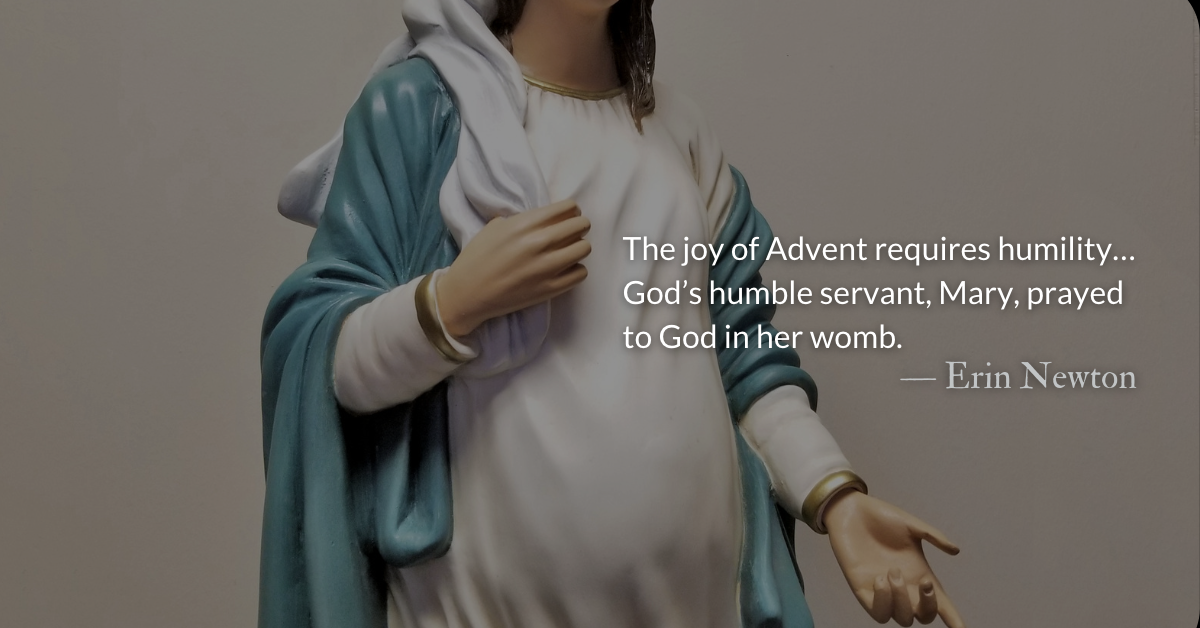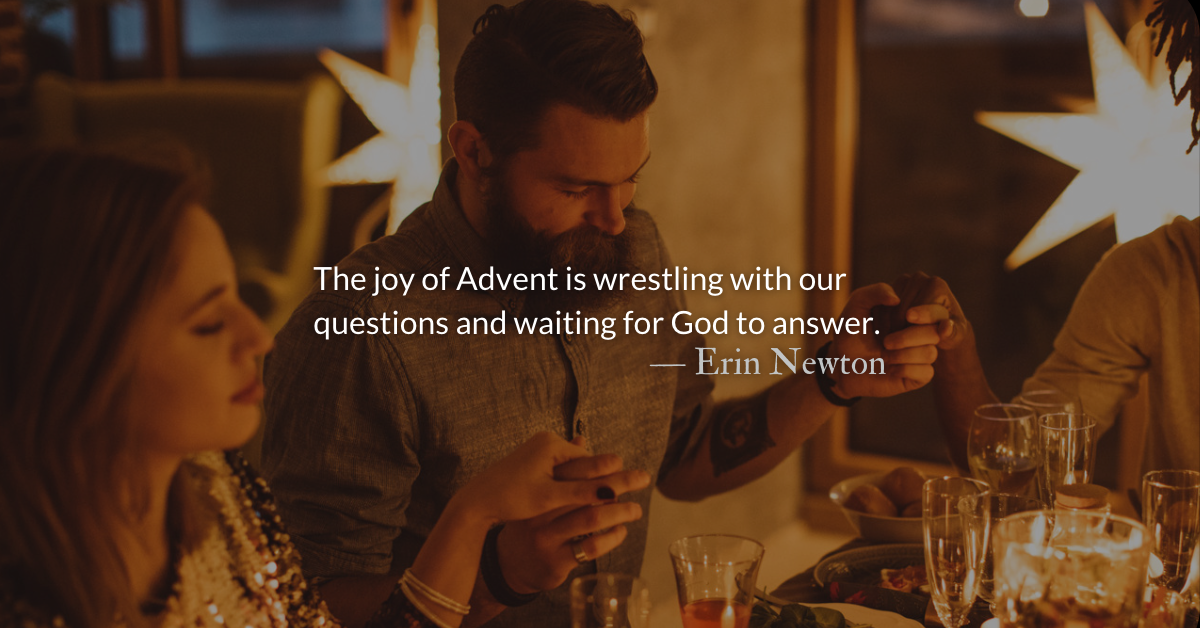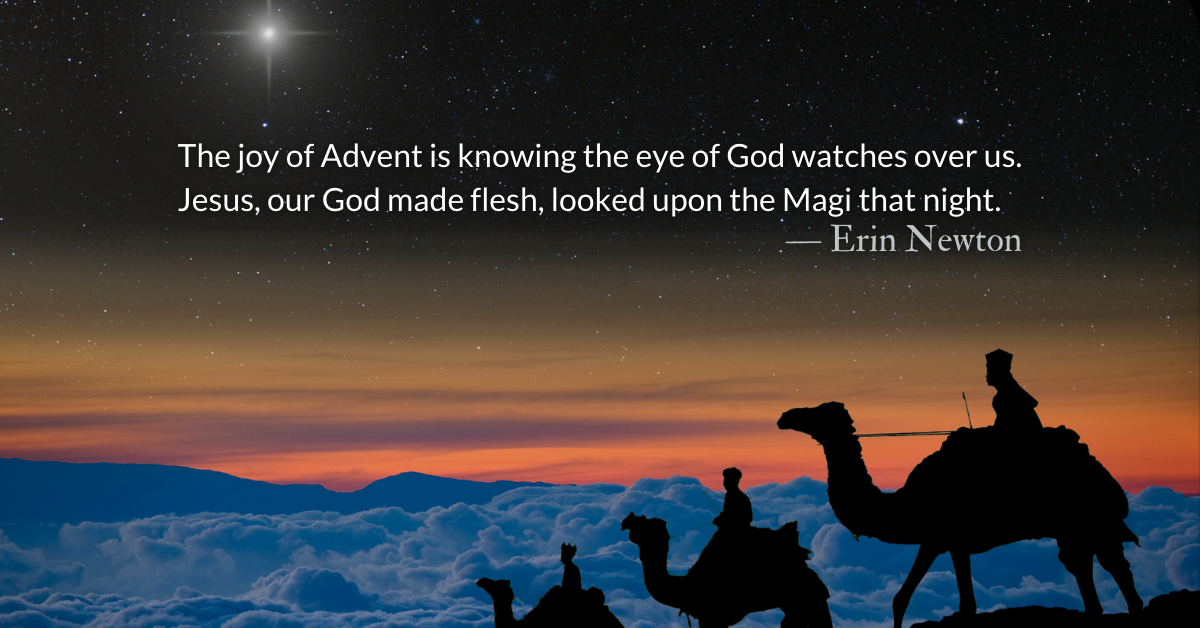Scripture Focus: Nehemiah 1.3-43
They said to me, “Those who survived the exile and are back in the province are in great trouble and disgrace. The wall of Jerusalem is broken down, and its gates have been burned with fire.” 4 When I heard these things, I sat down and wept. For some days I mourned and fasted and prayed before the God of heaven.
Revelation 10.6b-7
6b “There will be no more delay! 7 But in the days when the seventh angel is about to sound his trumpet, the mystery of God will be accomplished, just as he announced to his servants the prophets.”
Reflection: Peace in the Waiting — Peace of Advent
By John Tillman
There are so many waiting moments in scripture. We see waiting on God as a consistent theme. In nearly every story about any key figure of faith, there are times of waiting.
Nehemiah’s generation waited for rescue. As the exile began to come to an end, however, the reports from those returning were not good. Trouble, disgrace, and danger were the norm. After all the waiting in exile, and returning home, all was still not well. Peace was elusive.
John wrote Revelation waiting in exile on the isle of Patmos. The “son of thunder” (Mark 3.17; Luke 9.51-56) had become the disciple of love, the “elder” who cared for God’s children (2 John 1.1-2; 3 John 1.1, 4), and sought peace for God’s church. (Revelation 1.4-6)
There are so many waiting moments in our lives. Usually, what we are waiting for is something we need or want right now. When waiting, we feel stuck. We feel sidelined. We feel behind everyone else. We feel abandoned. In these waiting moments, peace seems impossible.
Advent is an exercise in waiting. It is laid out in the calendar of the church like a lesson to be taught. We mark the weeks and the days. Perhaps we light candles or eat treats from a calendar to mark the march toward Christmas day. As we practice waiting expectantly for a day on the calendar, we learn how to wait for things that are not tied to a date.
Like the returning Jews, we live in quasi-exile. Free but under oppression. Saved but still suffering. Like John, we stand between physical and spiritual realities. We simultaneously languish on an isle of exile and walk with Jesus the living One. We see the Kingdom of God yet suffer the kingdoms of human rulers. Trouble, disgrace, and danger may be the norm.
Nehemiah shows us the efficacy of prayer and fasting as we wait and how to act when God’s hand moves. John says to the church that he is our “companion in the suffering and kingdom and patient endurance that are ours in Jesus” (Revelation 1.9) and he testifies that there is coming a day when there will be no more delay.
A day is coming when waiting will be no more. Faith will be sight. Peace will be present. The mystery of God will be accomplished. That day, though not yet, is certain. That peace, though beyond understanding, can be ours, even in the waiting.
Divine Hours Prayer: The Refrain for the Morning Lessons
Be strong and let your heart take courage, all you who wait for the Lord. — Psalm 31.24
Today’s Readings
Nehemiah 1 (Listen 2:06)
Revelation 10 (Listen 1:59)
Read more about Supporting Our Work
Please consider joining our donors, sharing with us a “thank you” to our donors, or both!
Read more about Eating the Book
Eating the Bible may be uncomfortable. It means digesting parts we’d rather not swallow.











